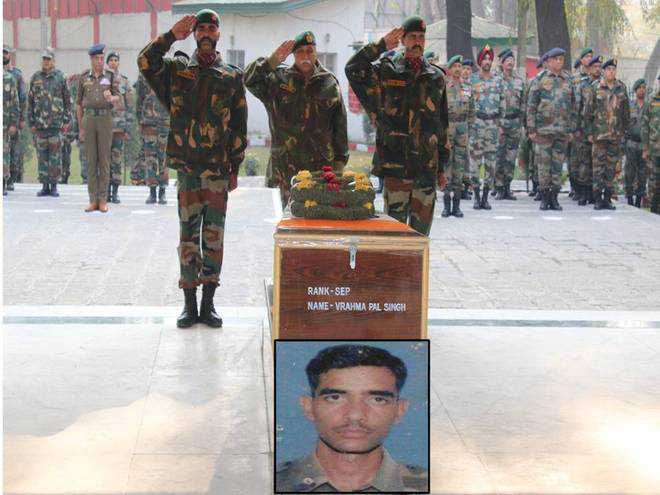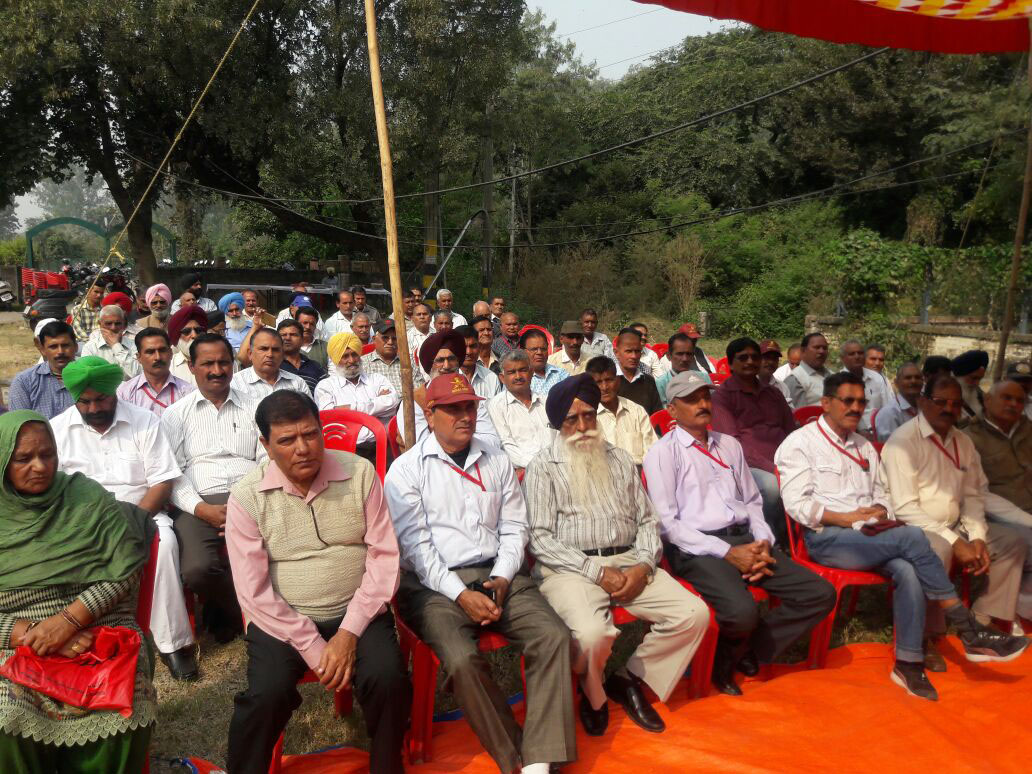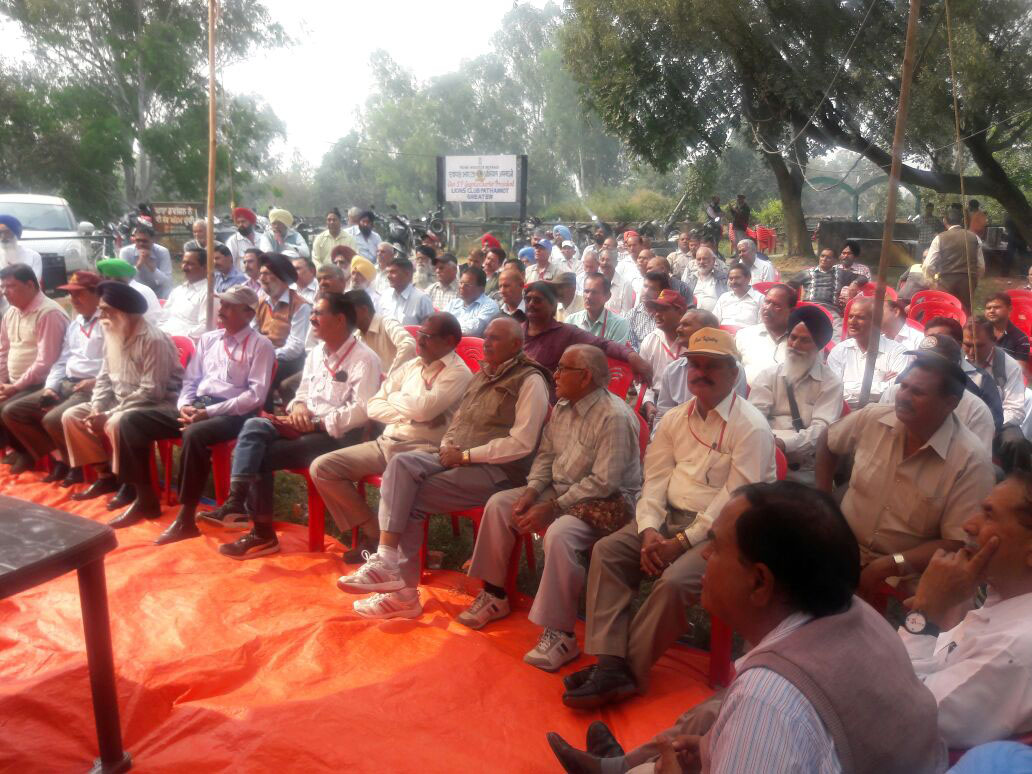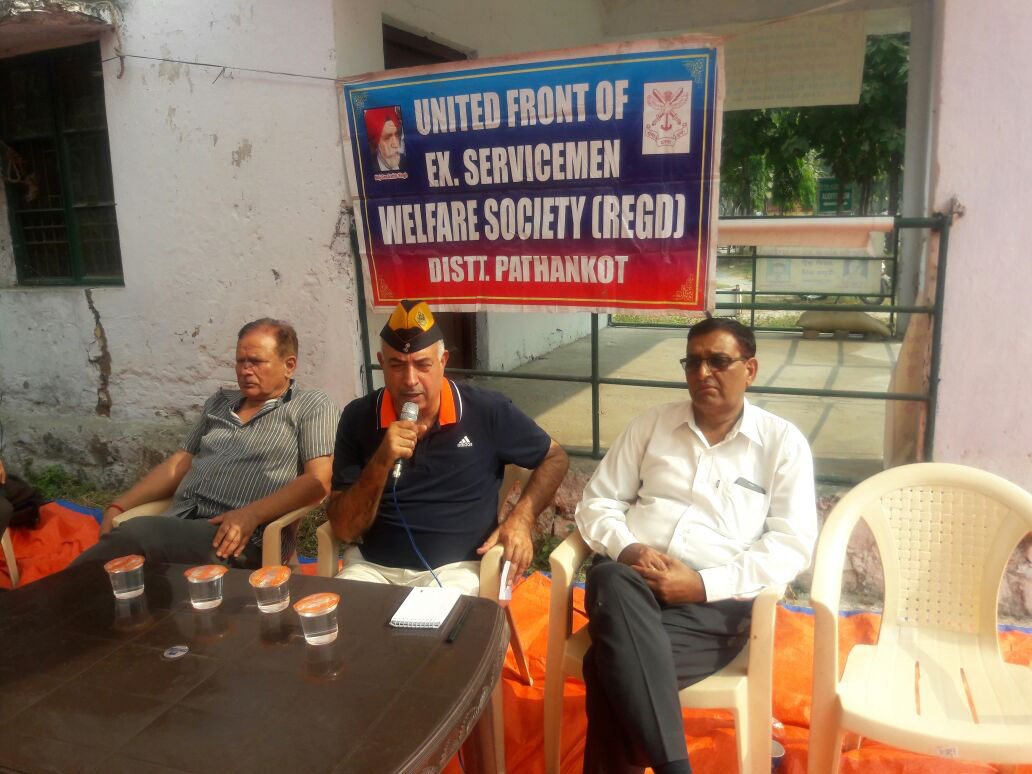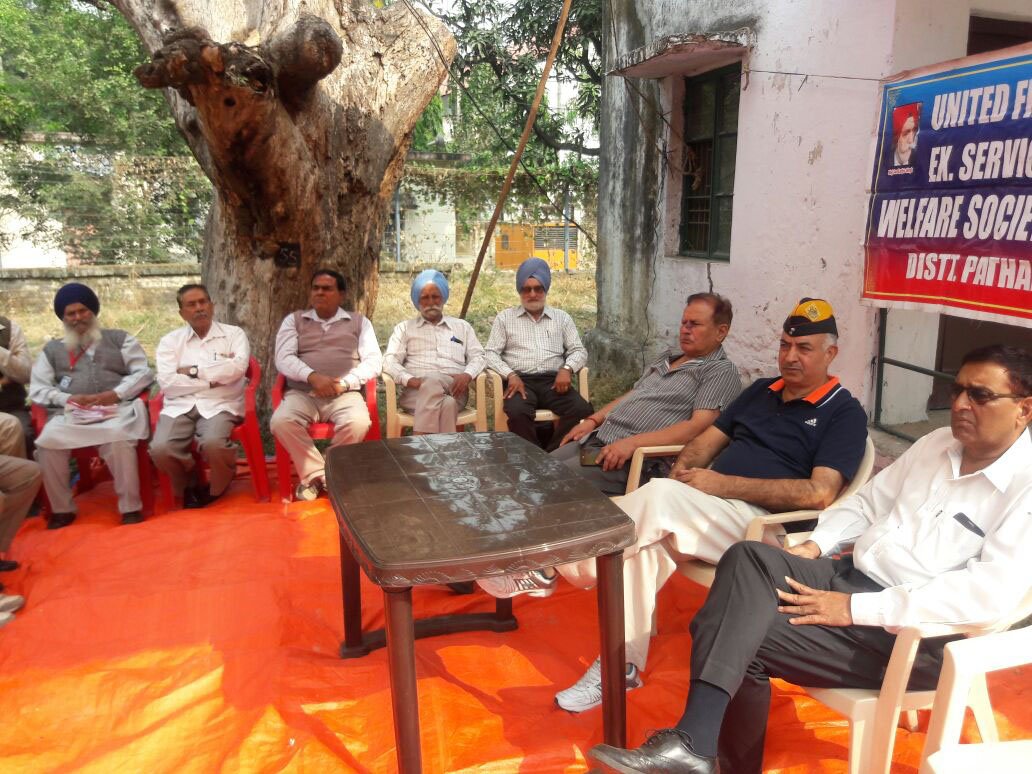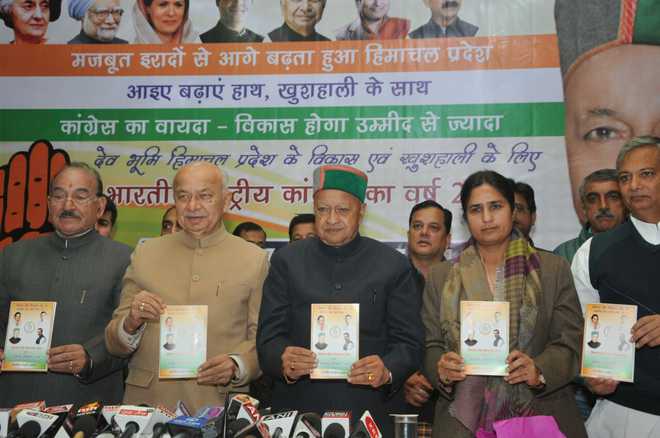
Congress woos farmers, employees in election manifesto. Tribune photo: Amit Kanwar
Pratibha Chauhan
Tribune News Service
Shimla, November 1

The ruling Congress in Himachal Pradesh on Wednesday released its manifesto, promising to strengthen the farm sector by granting interest-free loans to farmers, creation of 1.50 lakh jobs in the government sector and free laptops to 50,000 college students.
The manifesto lays thrust on strengthening the farm sector and proposes a Rs 1-lakh interest-free loan and 90 per cent subsidy on anti-hail net.Also read: BJP on backfoot in Himachal, says Vikramaditya Singh(Follow The Tribune on Facebook; and Twitter @thetribunechd)The manifesto also attempts to woo employees, pensioners and daily wagers.
Our manifesto is a golden link in the chain of colossal progress in Himachal. Once again, we embark on this momentous journey
It says the contractual employees would be regularised in two years and pensioners would get substantial hike in pension. The VAT on petrol and diesel would be reduced and the GST limit would be enhanced from present Rs 10 lakh to Rs 20 lakh to give benefit to traders, a issue raked by the BJP time and again.The Congress also promises higher compensation to landowners in land acquisition for four landing and other road projects.It also proposes pension scheme for workers in unorganised sector and says marriage grant to daughters of widows would be increased to Rs 1 lakh.The manifesto released by Chief minister Virbhadra Singh, Health Minister Kaul Singh, who is also chairman of manifesto Committee and AICC general secretary Sushil Kumar Shinde claimed that Congress had fulfilled 95 per cent of poll promises and would implement the remaining promises and fresh promises in the next term, if voted to power.
Singh said his government has ensured speedy and uniform development of the entire state, which is visible on the ground and development and welfare of all sections of people would be the main poll plank.
Kaul Singh said the Congress provided government jobs to 75,000 youth during the present term and 1.50 lakh jobs would be given in the next five years. For land acquired by the government, four times the market value will be provided as compensation.
The manifesto also promises enhancement of pension by 5, 10 and 15 per cent after the age of 65, 70 and 75 years, additional increments to employees after fourth, ninth and fourteenth year of service, increasing daily wages to Rs 350 and free laptops to 50,000 college students.
The Congress also promised decentralisation of administrative and financial powers down to panchayat level and continue food subsidy scheme to control price rise.
Speaking to reporters, Virbhadra Singh said the BJP’s decision to filed P K Dhumal would have no impact on prospects of the Congress.
The Himachal Pradesh elections will be held on November 9 and the result will be declared on December 18.
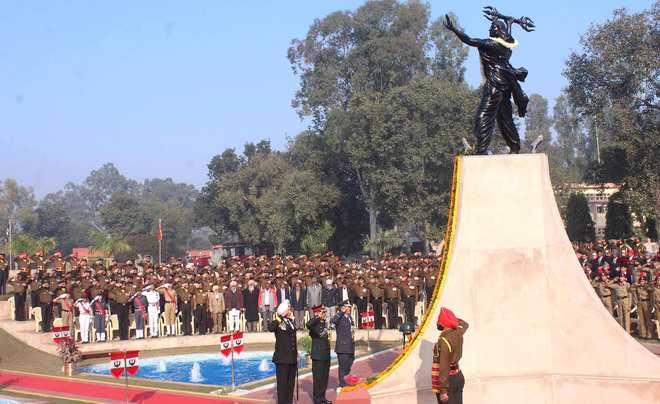


















































 VINAY S KUMAR/HT
VINAY S KUMAR/HT ANIL DAYAL/HT
ANIL DAYAL/HT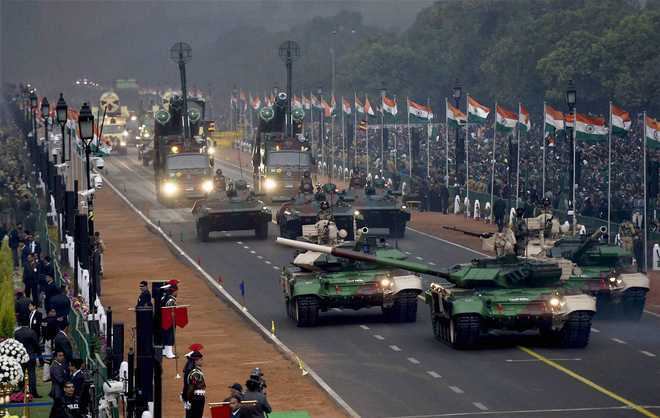
 AP FILE
AP FILE



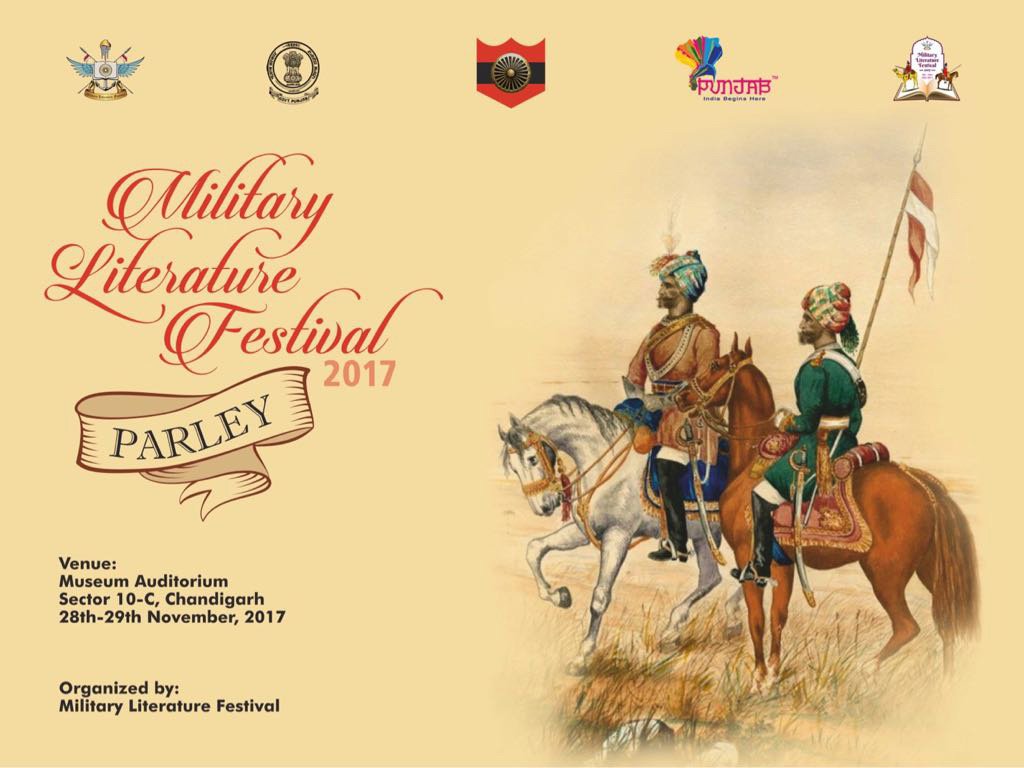
 KESHAV SINGH/HT
KESHAV SINGH/HT